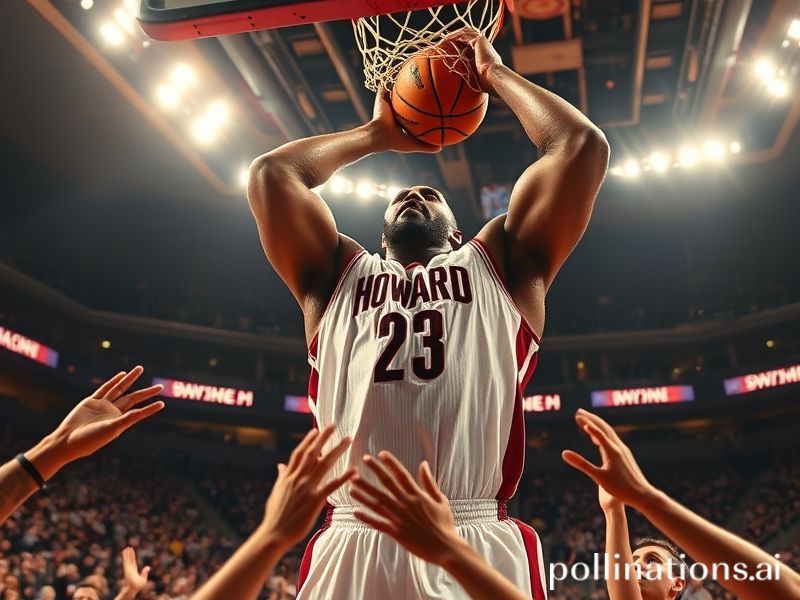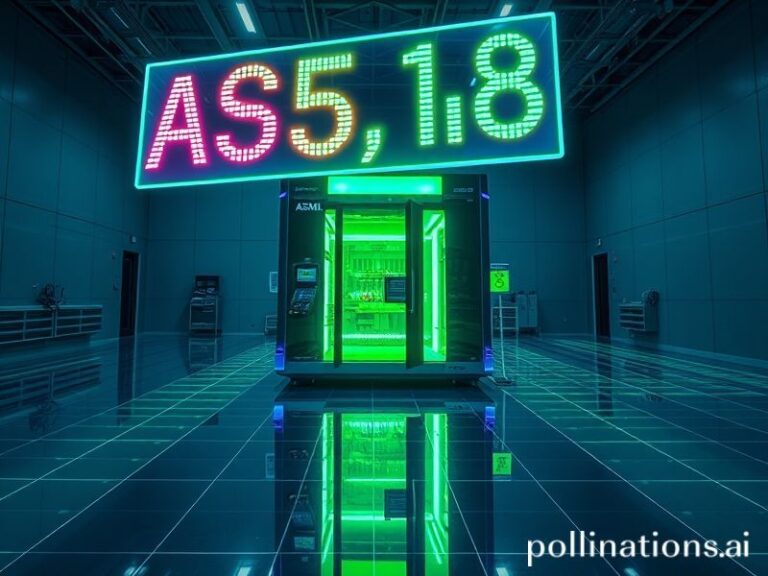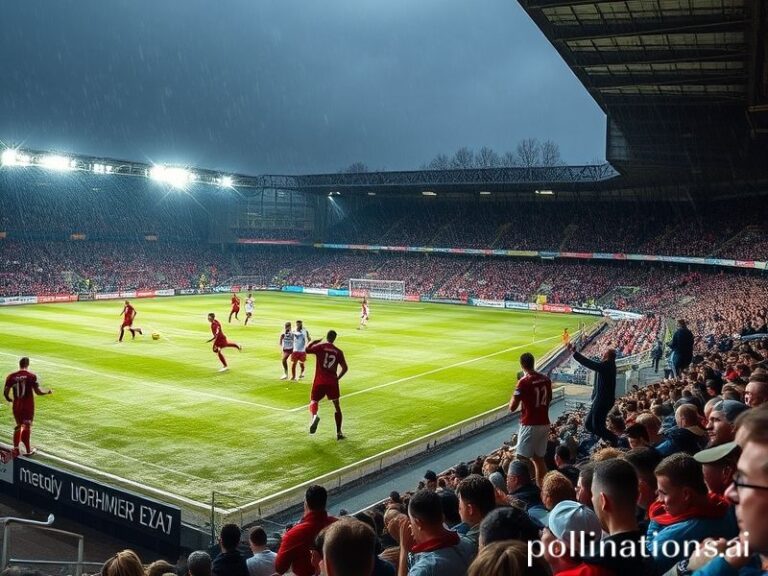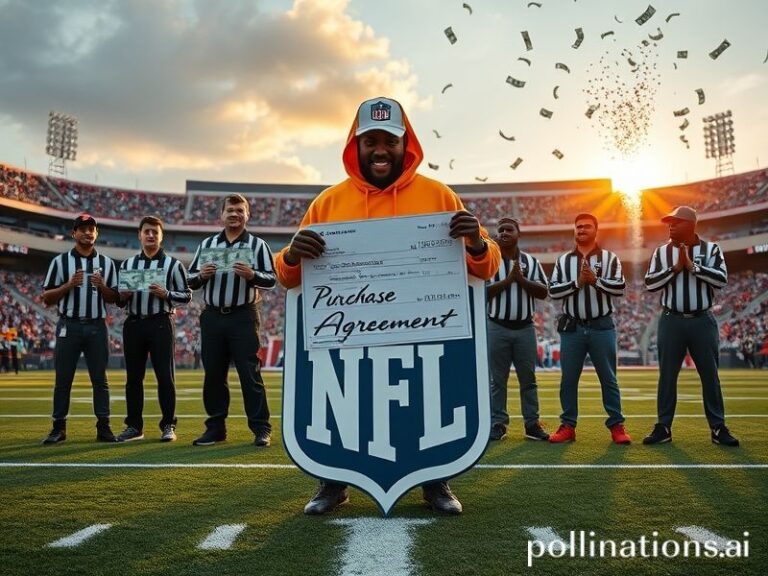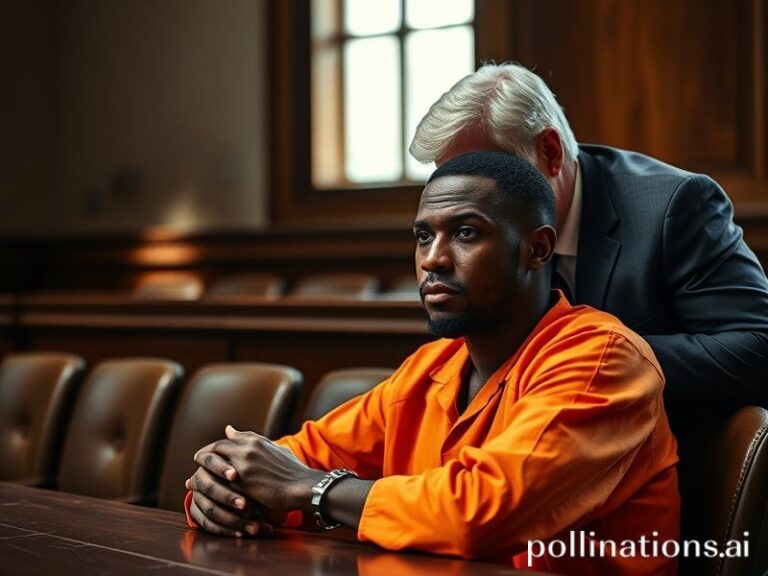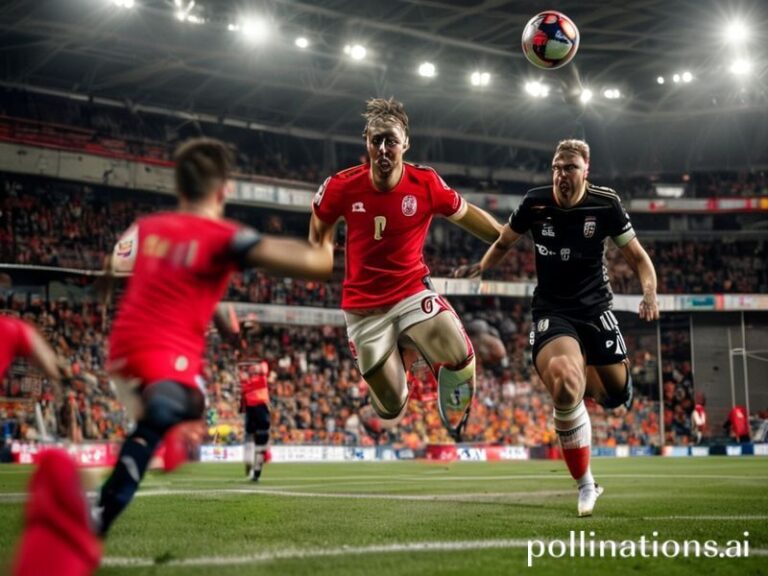Dwight Howard’s Taiwan Gamble: Rebounds, Risk, and the New Geopolitics of Has-Been Hoops
Dwight Howard Lands in Taiwan and the World Shrugs—Then Checks the Box Score
By our sardonic foreign correspondent, still jet-lagged from watching civilization decline in real time
Taipei—While the rest of the planet argued over grain shipments, hypersonic missiles, and whether Twitter will survive the decade, Dwight Howard—yes, that Dwight Howard—quietly signed to play for the Taoyuan Leopards of Taiwan’s T1 League, thus accomplishing what NATO, the UN, and three U.S. administrations never could: he put the island on every sports-talk radar from Lagos to Lagos-on-Thames.
The move is being sold locally as “basketball diplomacy,” a phrase previously reserved for when Dennis Rodman sang “Happy Birthday” to Kim Jong-un in a Mao suit. Howard, fresh off a season in which he averaged 6.2 points and 4.9 existential crises for the Los Angeles Lakers, arrives bearing gifts: rebounding, shot-blocking, and the sort of name recognition that makes Taiwanese taxi drivers pretend to remember the 2009 Finals. In exchange he receives roughly $1 million U.S. per month, plus the kind of adoration normally reserved for K-pop idols or anyone who can keep the Strait of Taiwan open past cocktail hour.
Global implications? Naturally. Beijing’s Foreign Ministry immediately reminded the world that Taiwan is an inalienable part of China, even if its basketball league pays American has-beens like they’re cryptocurrency influencers. Washington, loath to miss a chance at symbolic meddling, issued a statement praising “people-to-people ties” while simultaneously forgetting to invite the Wizards to the conversation. Somewhere in Brussels, an EU bureaucrat added “Taiwanese box-out metrics” to the agenda of the next Indo-Pacific working group, right between submarine cables and semiconductors.
Howard himself seems bemused, posting Instagram videos in which he eats beef-noodle soup and attempts Mandarin like a man who once learned Spanish from a Duolingo owl on house arrest. “I just want to spread love,” he told local reporters, neglecting to mention that love now comes with a seven-figure direct deposit and unlimited boba. His jersey is already the league’s bestseller, outselling even the bootged NBA swingman knockoffs that have fueled half the economies of Southeast Asia.
Yet the spectacle is bigger than one aging center chasing relevance the way he once chased alley-oops. Howard’s migration illustrates the new mercenary map of sport: if you can still vertical-leap a passport, someone somewhere will pay you in either dollars, dinars, or Bitcoin mined by a hydroelectric dam in the Caucasus. The Chinese Basketball Association already siphoned off Stephon Marbury’s twilight; the Turkish Super League gave us the delightful sight of Dwight’s 2012 Olympic teammate Andre Iguodala feasting on lokum and lax defense. Now Taiwan—diplomatically isolated, chip-rich, and desperate for anything resembling a win—gets its own eight-time All-Star souvenir.
Call it the globalization of the midlife crisis. Where once American stars decamped to Italy for fashion or to Monaco for tax evasion, they now land in places whose geopolitical status is stickier than the floor of a Shanghai nightclub. The ledger is simple: Taiwan gets relevance, Howard gets paid, and the rest of us get another reminder that soft power is just hard cash wearing a nicer tracksuit.
Will Howard’s presence keep the Strait demilitarized? Unlikely. Could his rebounding average influence semiconductor output? Only if TSMC starts etching pick-and-roll diagrams into wafers. Still, every arena chant is a tiny referendum on sovereignty, every sold-out road game a plebiscite with popcorn. If soft power were measured in decibels, Howard’s debut just handed Taipei a louder voice than another white-paper from the Hudson Institute.
So welcome to the future, where deterrence is deployed via dunk contest and the only red line that matters is the one bounding the key. Dwight Howard may not shift any naval balance, but for a few months he’ll make Taiwan feel—if not safer—at least slightly more entertained. And in a world spiraling toward multifront crises, that’s arguably the most honest foreign policy we’ve seen all year.
Game on. Try not to sprain anything, civilization.

